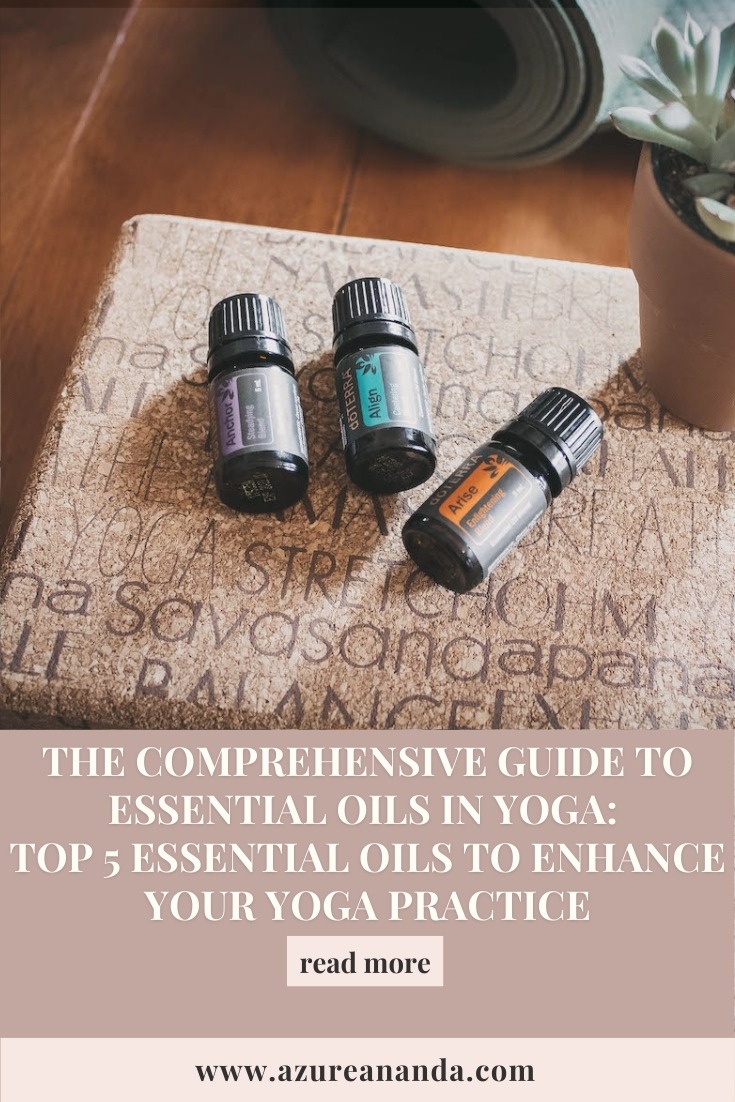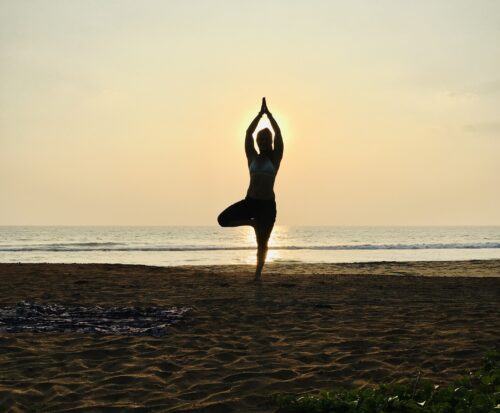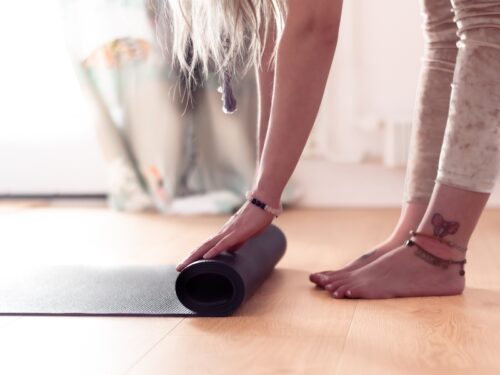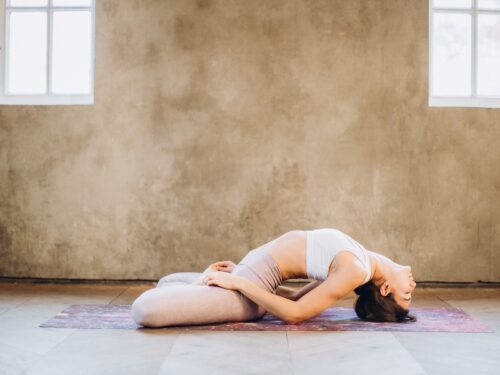
The Comprehensive Guide to
Essential Oils in Yoga:
Top 5 Essential Oils to Enhance Your Yoga Practice

By Hanne
The Comprehensive Guide to
Essential Oils in Yoga:
Top 5 Essential Oils to Enhance Your Yoga Practice
Why use essential oils in the yoga practice? Essential oils are powerful plant extracts that offer a variety of therapeutic benefits. When used in yoga, they can for example:
Enhance Relaxation: Calm the nervous system and promote a peaceful state of mind. Essential oils work by interacting with the limbic system in the brain, which controls emotions and stress responses. They can help reduce the levels of cortisol, the body’s primary stress hormone, and activate the parasympathetic nervous system, which is responsible for rest and digestion. This dual action not only calms the nervous system but also allows the mind to enter a state of deep relaxation and tranquility, facilitating a more restorative yoga practice.
More Focus And Energy
Boost Focus: Sharpen mental clarity and concentration. Sharpening mental clarity and concentration is essential in yoga because it helps practitioners stay present and engaged with their movements and breath. A focused mind can better connect with the body’s signals, ensuring proper alignment and technique in each pose. This heightened awareness prevents injuries and enhances the overall effectiveness of the practice.
Increase Energy: Stimulate the senses and invigorate the body. Some oils promote better oxygen flow and circulation, enhancing stamina and endurance. By invigorating the body and mind, these oils help practitioners tackle fatigue and maintain a high level of energy throughout their practice.
Balance Emotions: Stabilize emotions and create a sense of harmony. Essential oils can influence the brain’s chemistry by interacting with neurotransmitters like serotonin and dopamine, which regulate mood and emotional well-being. This biochemical interaction helps to soothe anxiety, lift depression, and foster a sense of emotional equilibrium.
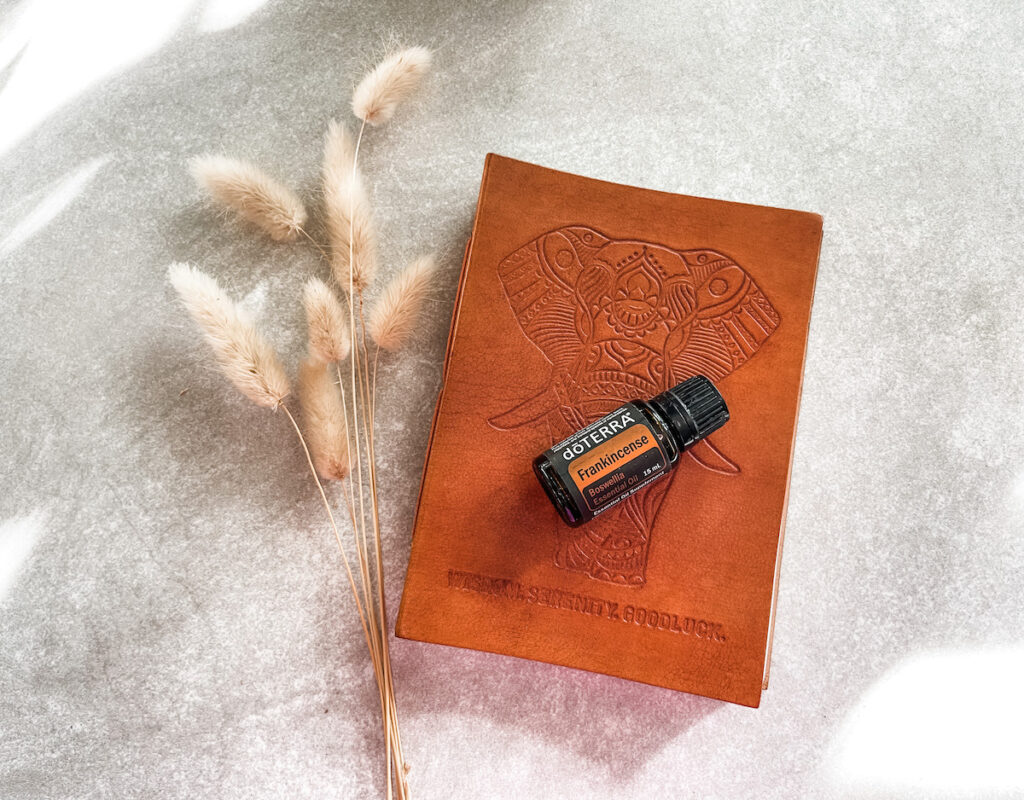
1. Frankincense: The King of Oils
Benefits:
Spiritual Grounding: Frankincense is revered for its grounding and spiritual properties, making it ideal for deepening meditation and enhancing mindfulness. It helps you connect to a higher state of consciousness.
Calm and Clarity: Its soothing aroma helps reduce feelings of stress and anxiety, promoting a sense of inner peace and clarity. It supports emotional balance and can enhance your spiritual connection during yoga practice.
2. doTERRA's Align: Centering Blend
Benefits:
Alignment and Balance: This oil blend is one of the doTERRA’s Yoga collection’s oils. It is specially formulated to help you feel centered and balanced. It combines essential oils like bergamot, coriander, and marjoram to promote feelings of self-acceptance and trust, encouraging a harmonious flow of energy throughout your practice.
Focus and Clarity: Align helps you stay focused and clear, making it easier to flow through your yoga practice with intention. It can enhance your ability to maintain poses and improve your overall concentration.
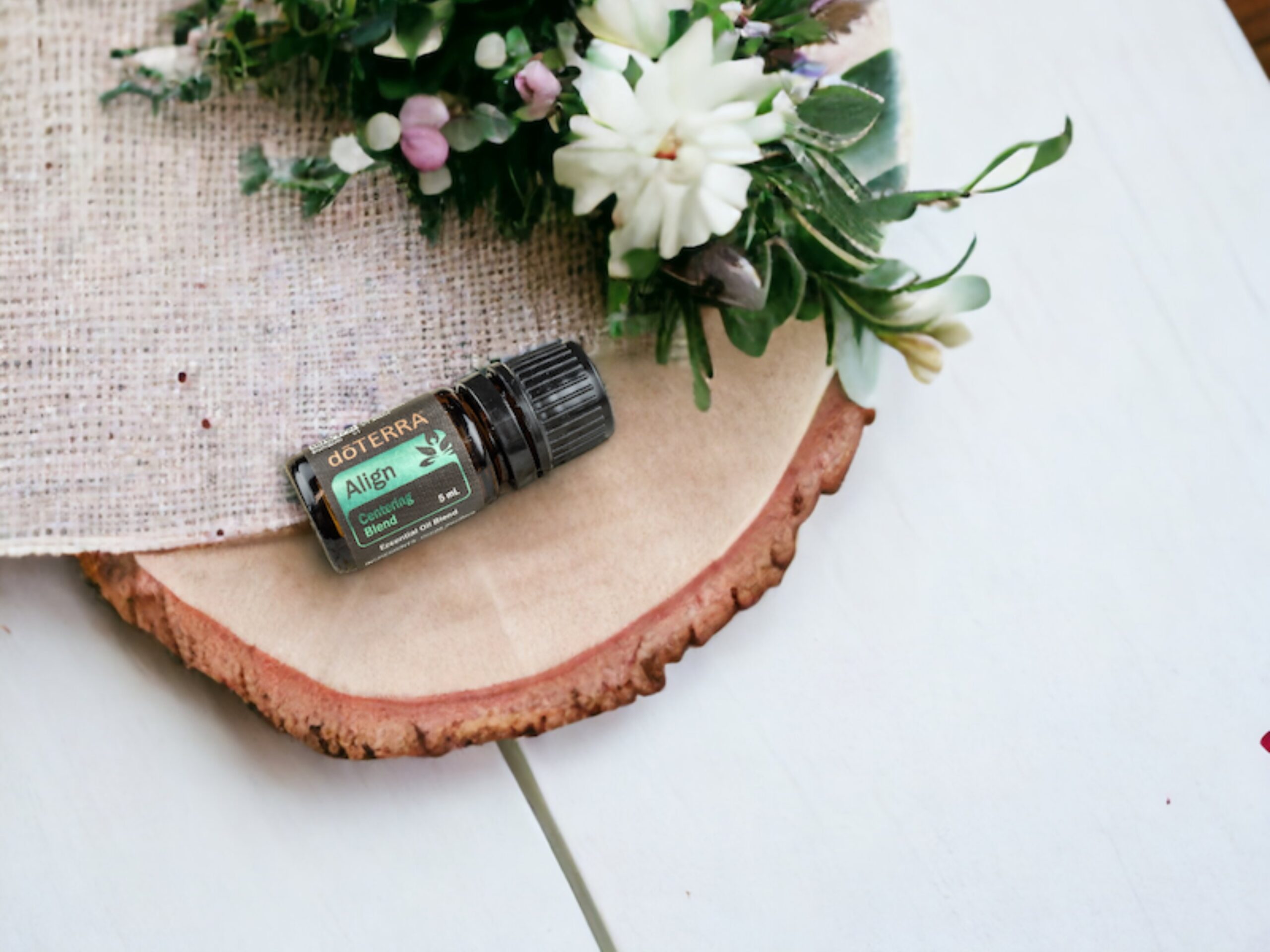
3. Geranium: The Oil of Love and Trust
Benefits:
Emotional Balance: Geranium oil is known for its ability to balance emotions and uplift the spirit. It helps alleviate anxiety and promotes a sense of calm and well-being, making it a wonderful companion for heart-opening practices. Geranium is said to facilitate trust, especially when individuals have lost trust in others due to difficult life circumstances.
Skin Health: This oil is also excellent for skin health, making it a great choice for post-yoga skin care routines. It supports a healthy, glowing complexion.
4. Eucalyptus: For Clear Breathing and Invigoration
Benefits:
Respiratory Support: Eucalyptus oil is known for its ability to clear the airways and support healthy respiratory function. This makes it perfect for pranayama (breath control) practices, enhancing your breathwork and overall lung capacity.
Energy Boost: Its refreshing aroma invigorates the senses, helping to boost energy levels and enhance mental clarity. It’s great for revitalizing both the body and mind, especially during morning yoga sessions. Eucalyptus is one of my go-to oils to be used in after-yoga self-care routines, or maybe I should say spa-like experiences. Adding a few drops to the shower floor does the magic.

5. Patchouli: For Grounding and Stability
Benefits:
Grounding: Patchouli oil is known for its grounding and stabilizing properties, making it ideal for practices that focus on balance and connection to the earth. It can help you feel more rooted and present in your practice. Patchouli is said to be an oil that supports individuals to become fully present in their bodies.
Calming: Its rich, earthy scent helps calm the mind and reduce anxiety, promoting a sense of peace and stability. It’s especially beneficial for relaxation and restorative yoga sessions.
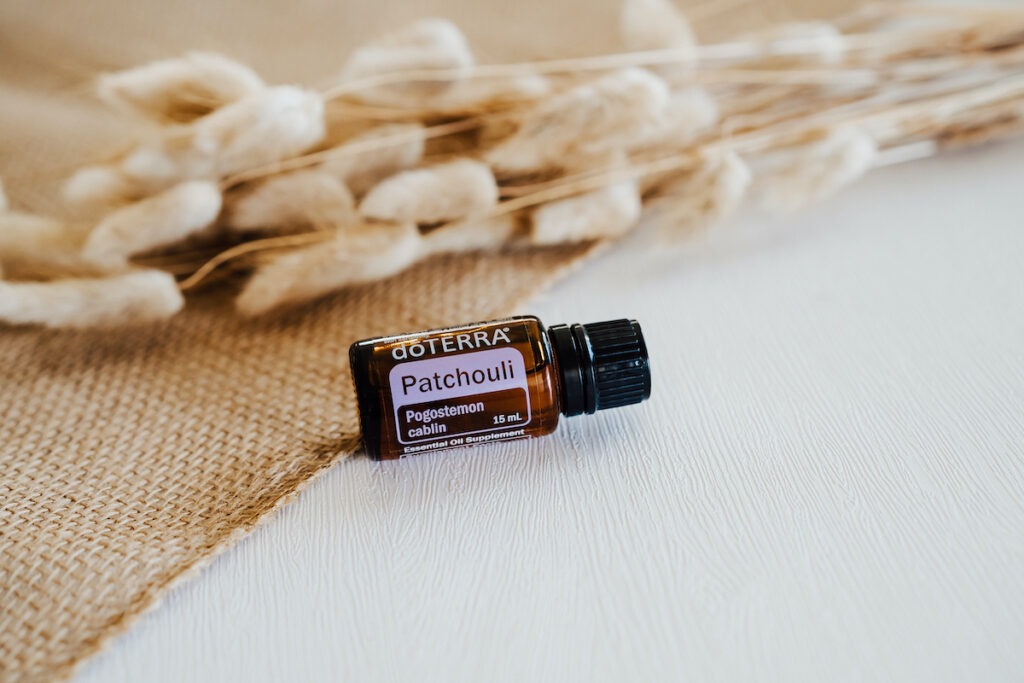
How to Incorporate Essential Oils into Your Yoga Routine
Diffusing: Use an essential oil diffuser to fill your yoga space with calming or invigorating scents. This method is perfect for creating an atmosphere that supports your practice intentions.
Topical Application: Dilute essential oils with a carrier oil (such as fractionated coconut or jojoba oil) and apply to your skin. Focus on pulse points, the third eye, soles of your feet, or areas of tension.
Inhalation: Simply inhale the aroma directly from the bottle or drop a few drops onto your palms. This method provides quick access to the oils’ benefits.
Aromatic Sprays: Create a yoga mat spray by combining water, a few drops of essential oil, and a splash of witch hazel. Spray your mat before practice to enhance your sensory experience.
Massage: Incorporate essential oils into your pre- or post-yoga massage routine. This not only helps to relax muscles but also integrates the therapeutic benefits of the oils.
Enhance Your Yoga Practice
Integrating essential oils into your yoga practice can profoundly enhance your physical, mental, and emotional well-being. By understanding the benefits of different oils and how to use them effectively, you can create a personalized and enriching yoga experience.
Start exploring these essential oils today and discover how they can transform your practice.
Have questions or need personalized advice? Feel free to reach out in the comments or send me a message! How have essential oils enhanced your yoga practice? Share your experiences below!
Pin for Later

Hi, I'm Hanne
I am a yoga instructor and personal trainer dedicated to holistic wellbeing and natural living. On my blog, I share insights and practical tips to help you find balance and harmony in your life.

